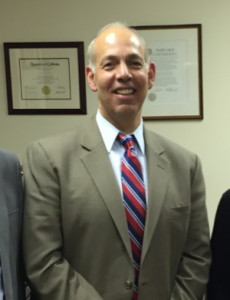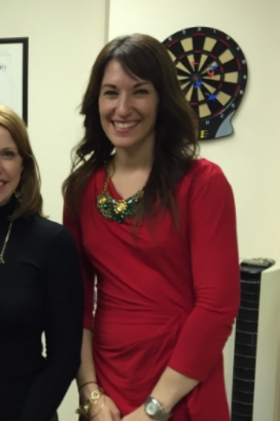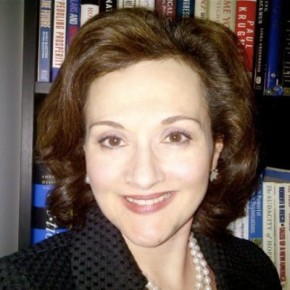The Collaborative for Educational Services (CES) is currently seeking an ELA Teacher to provide direct educational instruction to at-risk adolescents in programs run by the Department of Youth Services (DYS) in Springfield, MA. Bachelor’s Degree from an accredited college or university, secondary level Massachusetts teacher license in ELA required.
Teachers in DYS schools are part of the Massachusetts Teachers’ Retirement System.
Successful candidates may be eligible for the teacher loan forgiveness program.
Who We Are: Dedicated and collaborative teams of educators committed to supporting teaching excellence through coaching, professional development and excellent administrative support. CES prides itself on providing robust and engaging learning opportunities to all its teachers.
We value: Quality and excellence, innovation, creativity and vision, inclusiveness, equity and diversity and collaboration with others. Creating a community of care is foundational to the work we do… together!
Social Justice and Equity work is central to our mission, especially in these times. We understand that all forms of oppression are damaging. We engage in this work pro-actively and purposefully, with the intent of positive outcomes, and because we need to. We hope that you will join us in this work!
This is you:
You have a passion for teaching all students, especially those who have been marginalized.
You value professionalism, positive youth development and culturally responsive teaching.
You welcome the opportunity to teach small groups of students.
You’re excited about personalizing your approach to educating students in ways that focus both on academic and behavioral success.
You love to learn! You strive to understand emerging trends in education, seek to thoughtfully employ best practices, support diversity, equity and inclusion (DEI).
You recognize that addressing societal oppression and inequities requires ongoing education and a commitment to allyship.
Highlights of What You Will Do:
Provide effective, high quality, direct educational instruction to youth assigned to DYS.
Support the development and implementation of multiple pathways for learning which may include HiSET preparation, career/vocational exploration and post-secondary coursework.
Integrate individual student background information when designing instruction being considerate of future goals & objectives as stated in IEPs and based on learning style and/or needed accommodations.
Interested candidates must apply through the CES web-site. Click on the link below to apply today!
https://www.collaborative.org/employment/ela-teacher-springfield-ma
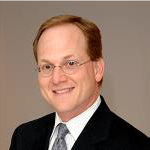
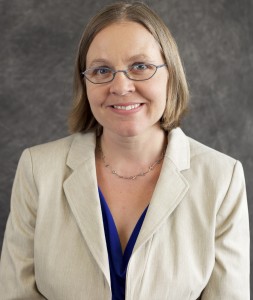 Carolyn Fisher, PhD, is a Research and Evaluation Scientist at the Institute for Community Health in Malden, MA. Trained as an anthropologist, her recent research interests include reaching vulnerable and underserved populations, conducting trauma-informed data collection, community engagement, and advocacy evaluation. She is an experienced and engaging speaker and facilitator who teaches at the Tufts University School of Medicine in addition to numerous lectures and presentations for clients.
Carolyn Fisher, PhD, is a Research and Evaluation Scientist at the Institute for Community Health in Malden, MA. Trained as an anthropologist, her recent research interests include reaching vulnerable and underserved populations, conducting trauma-informed data collection, community engagement, and advocacy evaluation. She is an experienced and engaging speaker and facilitator who teaches at the Tufts University School of Medicine in addition to numerous lectures and presentations for clients.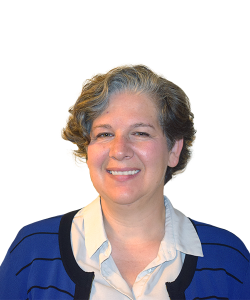

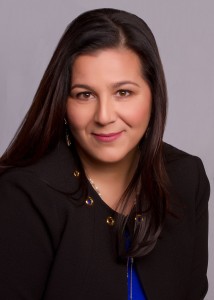
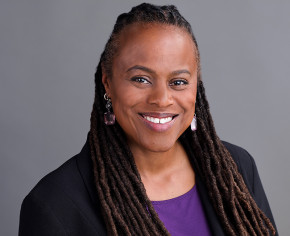

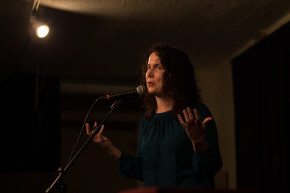
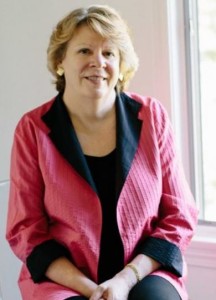
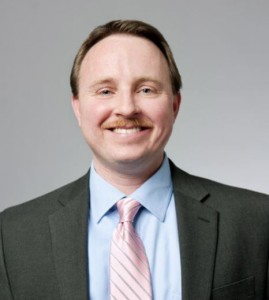
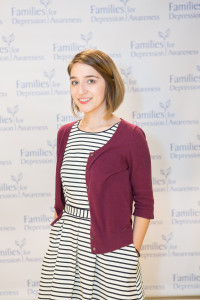 Arielle Cohen, Master of Social Work, has both lived and professional experience working with addressing mental health needs in the workplace. In 2017, Arielle received her degree as a Master of Social Work with a concentration on mental health and a focus in social innovation and leadership. Currently, Arielle is the Programs Manager with Families for Depression Awareness. With a vested interest in organizational development, management practices, facilitation techniques, and mental health support, Arielle is excited to engage organizations in addressing and supporting mental health needs.
Arielle Cohen, Master of Social Work, has both lived and professional experience working with addressing mental health needs in the workplace. In 2017, Arielle received her degree as a Master of Social Work with a concentration on mental health and a focus in social innovation and leadership. Currently, Arielle is the Programs Manager with Families for Depression Awareness. With a vested interest in organizational development, management practices, facilitation techniques, and mental health support, Arielle is excited to engage organizations in addressing and supporting mental health needs.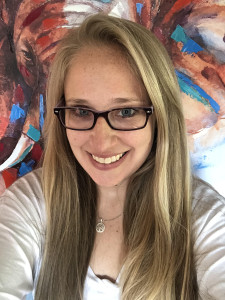 Rebekah Gibbons, LICSW, is a clinical social worker who specializes in mental health and trauma treatment for individuals, couples, and families. Rebekah also takes great care in supporting caregivers of all kinds to strengthen and maintain their own health in order to best support, teach, parent, mentor and/or guide others. Rebekah has collaborated with Families for Depression Awareness and City Year Boston to provide trainings about mental health, trauma, stress and employee wellness. Rebekah is passionate about raising awareness and ending the stigma of mental illness.
Rebekah Gibbons, LICSW, is a clinical social worker who specializes in mental health and trauma treatment for individuals, couples, and families. Rebekah also takes great care in supporting caregivers of all kinds to strengthen and maintain their own health in order to best support, teach, parent, mentor and/or guide others. Rebekah has collaborated with Families for Depression Awareness and City Year Boston to provide trainings about mental health, trauma, stress and employee wellness. Rebekah is passionate about raising awareness and ending the stigma of mental illness.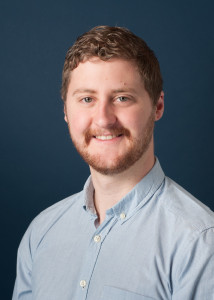 Jeffrey R. Desmarais, MA, is a Senior Project Manager at the Institute for Community Health (ICH) who has significant experience working with nonprofit leadership and staff to use data to inform and improve programs. He is a mixed methods evaluator who has worked with a variety of topics including, substance use disorder, teen pregnancy prevention, violence prevention, community needs assessments, and coalition evaluation. He has worked on a variety of strategic planning projects where he has used logic models as a tool to inform the strategic planning process.
Jeffrey R. Desmarais, MA, is a Senior Project Manager at the Institute for Community Health (ICH) who has significant experience working with nonprofit leadership and staff to use data to inform and improve programs. He is a mixed methods evaluator who has worked with a variety of topics including, substance use disorder, teen pregnancy prevention, violence prevention, community needs assessments, and coalition evaluation. He has worked on a variety of strategic planning projects where he has used logic models as a tool to inform the strategic planning process.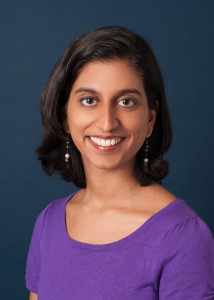 Ranjani Paradise, PhD, is Assistant Director of Evaluation at the Institute for Community Health (ICH). Ranjani is a mixed methods evaluator who has worked on projects in diverse topic areas including health disparities, language access, HIV, healthcare system transformation, consumer advocacy, and substance use disorder treatment. She has presented on evaluation topics at the American Evaluation Association annual conference, has designed and delivered national webinars, and has been an invited guest lecturer at Harvard University, Tufts University, and Cambridge Health Alliance. Ranjani teaches program evaluation at the Tufts University School of Medicine, and oversees the staff training program at ICH.
Ranjani Paradise, PhD, is Assistant Director of Evaluation at the Institute for Community Health (ICH). Ranjani is a mixed methods evaluator who has worked on projects in diverse topic areas including health disparities, language access, HIV, healthcare system transformation, consumer advocacy, and substance use disorder treatment. She has presented on evaluation topics at the American Evaluation Association annual conference, has designed and delivered national webinars, and has been an invited guest lecturer at Harvard University, Tufts University, and Cambridge Health Alliance. Ranjani teaches program evaluation at the Tufts University School of Medicine, and oversees the staff training program at ICH.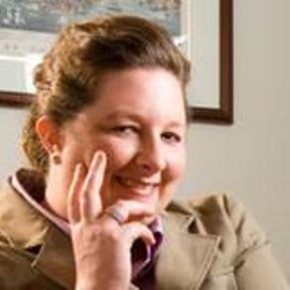
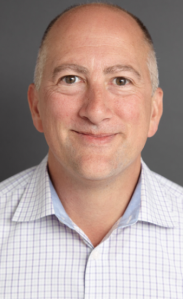
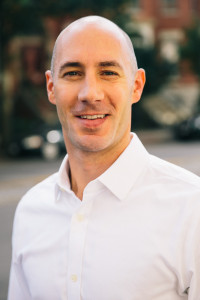

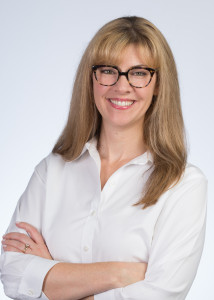
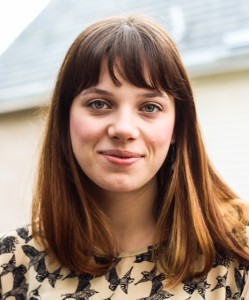 Caitlin Donnelly is the Education Director at Nonprofit VOTE. She has over 8 years of experience designing and leading workshops and presentations for nonprofits and grassroots organizers across the country. Based in Cambridge, Caitlin manages Nonprofit VOTE’s popular monthly webinar series, stewards strategic partnerships with national and state organizations, and builds the capacity of organizational partners to deepen their levels of voter engagement.
Caitlin Donnelly is the Education Director at Nonprofit VOTE. She has over 8 years of experience designing and leading workshops and presentations for nonprofits and grassroots organizers across the country. Based in Cambridge, Caitlin manages Nonprofit VOTE’s popular monthly webinar series, stewards strategic partnerships with national and state organizations, and builds the capacity of organizational partners to deepen their levels of voter engagement.
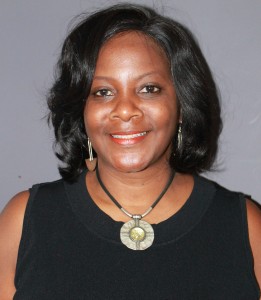
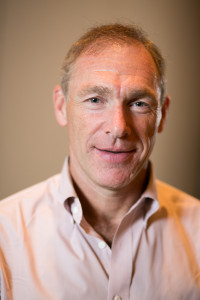

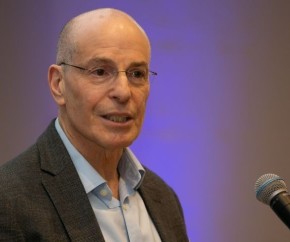
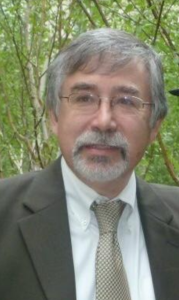
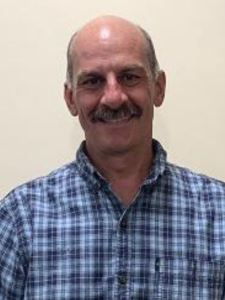
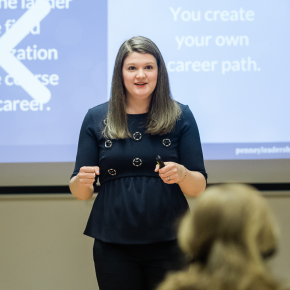
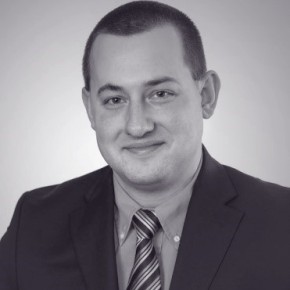
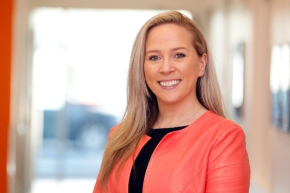
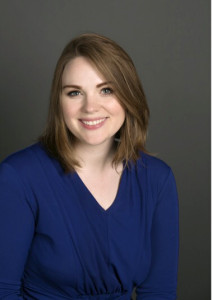
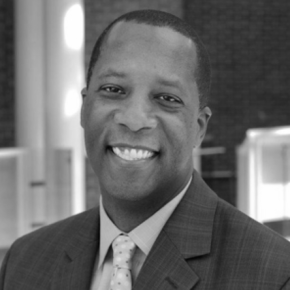
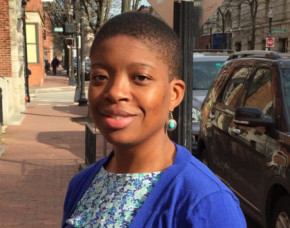
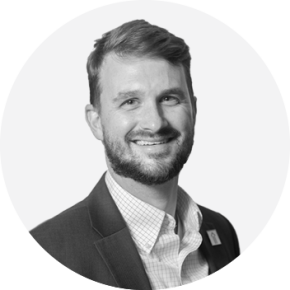
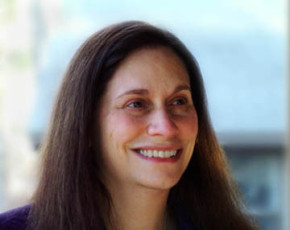
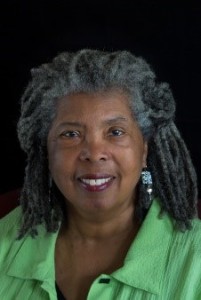
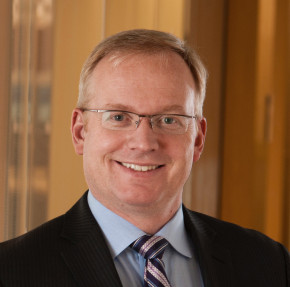

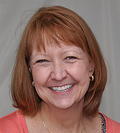
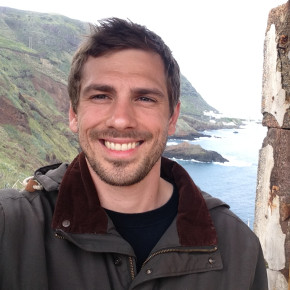

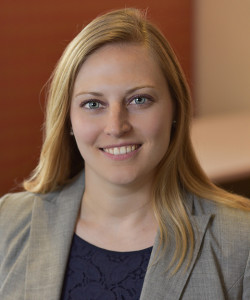
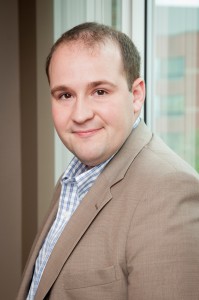
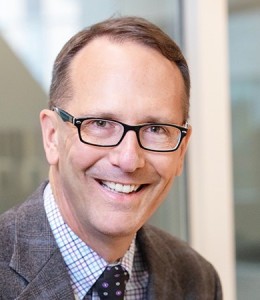
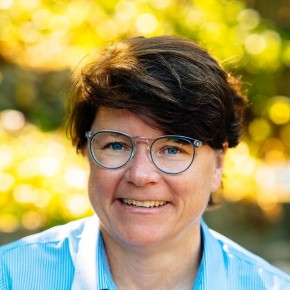 Susan Ryan-Vollmar is the principal of Influence Consulting, which brings public attention to social justice issues ranging from homelessness and sexual violence to the need for greater access to health care, the arts, and education. In 2016, The History Project honored her with its lifetime achievement “History Maker” award for her work at Bay Windows, when she led the paper’s coverage of marriage equality in Massachusetts, and for her work at the Boston Phoenix, when she oversaw the paper’s investigative reporting in 2000 and 2001 that exposed the abuse of children by priests taking place within the Boston Archdiocese.
Susan Ryan-Vollmar is the principal of Influence Consulting, which brings public attention to social justice issues ranging from homelessness and sexual violence to the need for greater access to health care, the arts, and education. In 2016, The History Project honored her with its lifetime achievement “History Maker” award for her work at Bay Windows, when she led the paper’s coverage of marriage equality in Massachusetts, and for her work at the Boston Phoenix, when she oversaw the paper’s investigative reporting in 2000 and 2001 that exposed the abuse of children by priests taking place within the Boston Archdiocese.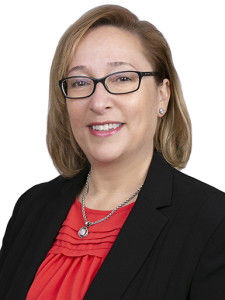
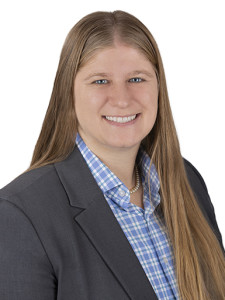
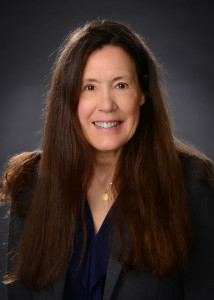 Nan ONeill has 30 years of experience counseling and representing employers in all aspects of labor and traditional employment law. She litigates employment-related disputes, including discrimination, reasonable accommodation, sexual harassment and wrongful termination matters. Nan also counsels clients on a day-to-day basis on employment compliance issues. Nan frequently conducts manager training sessions on topical legal issues such as harassment, reasonable accommodation, state and federal family and medical leave laws. Nan is often called upon to conduct internal investigations including complaints of harassment, discrimination and ethical violations. Nan is a graduate of the Georgetown University Law Center and Boston College.
Nan ONeill has 30 years of experience counseling and representing employers in all aspects of labor and traditional employment law. She litigates employment-related disputes, including discrimination, reasonable accommodation, sexual harassment and wrongful termination matters. Nan also counsels clients on a day-to-day basis on employment compliance issues. Nan frequently conducts manager training sessions on topical legal issues such as harassment, reasonable accommodation, state and federal family and medical leave laws. Nan is often called upon to conduct internal investigations including complaints of harassment, discrimination and ethical violations. Nan is a graduate of the Georgetown University Law Center and Boston College.